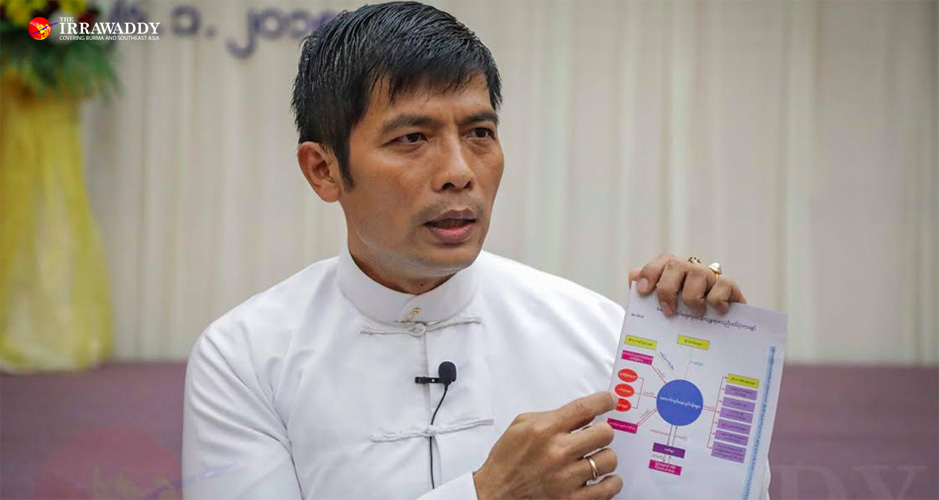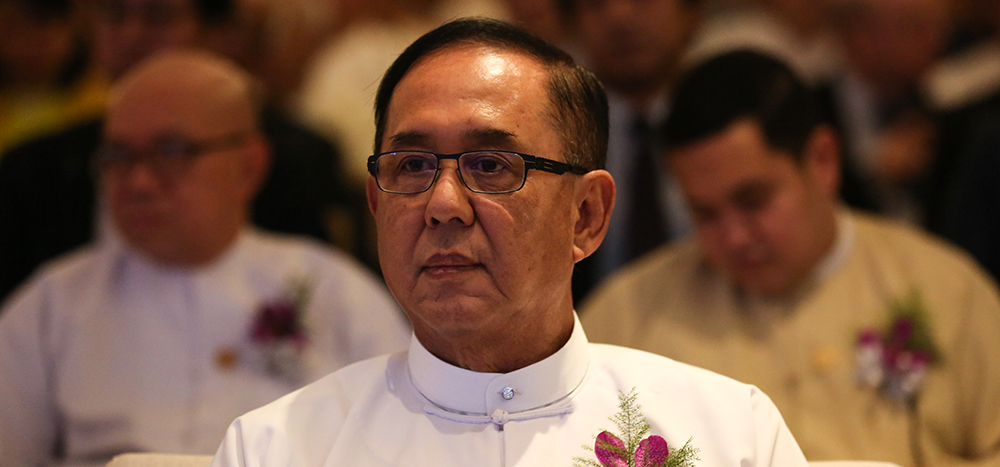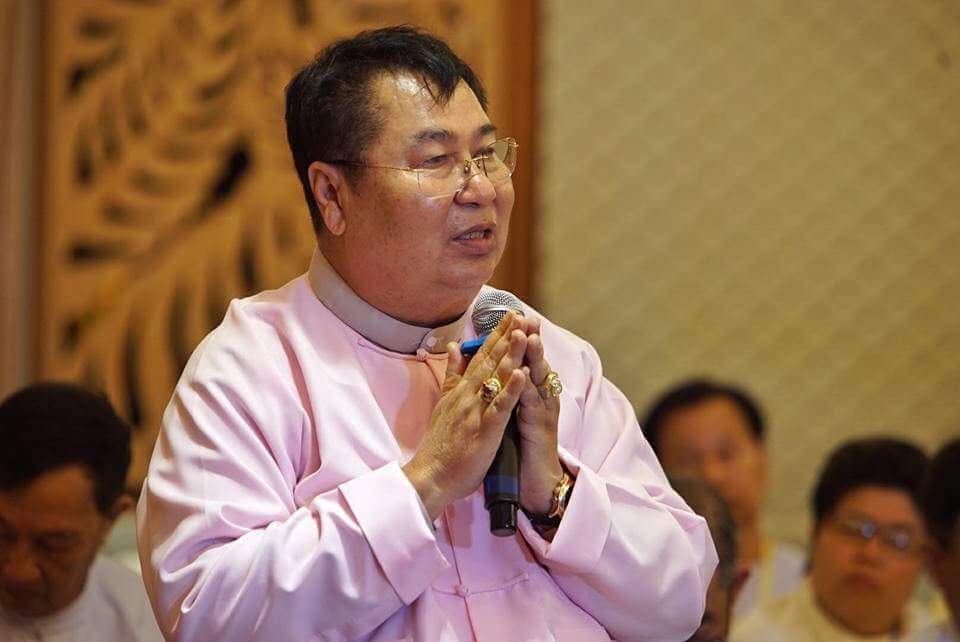Some business owners who prospered under previous military regimes have fallen from favor under Myanmar’s current junta with some cronies detained after the February 2021 coup.
Of Myanmar’s top-five cronies, two were deemed too close to ousted State Counselor Daw Aung San Suu Kyi and were questioned for a few days.
Several tycoons amassed fortune under the previous military regime, exploiting their ties with Senior General Than Shwe, Vice Senior General Maung Aye, General Khin Nyunt, General Tin Aung Myint Oo and General Shwe Mann and other generals.
Junta witness

The first crony who was detained after the coup was Maung Weik, the owner of Sae Paing Construction Co.
Maung Weik was sentenced to 15 years in prison in 2008 under the previous military regime for drug trafficking and was released in 2014 under U Thein Sein’s quasi-civilian government.
He was a key prosecution witness in a corruption case against Daw Aung San Suu Kyi over donations made to her Daw Khin Kyi Foundation and other National League for Democracy (NLD) ministers.
The foundation is a charity headed by Daw Aung San Suu Kyi and named after her mother.
After his release from prison, Maung Weik offered substantial support to the NLD following its victory in the 2015 general election. He was known to have close ties with Daw Aung San Suu Kyi and her Yangon Region chief minister U Phyo Min Thein.
Sae Paing won contracts for projects in Yangon, Mandalay and other cities, including the construction of staff quarters at the Hline campus of Yangon University.
He generously contributed to Daw Aung San Suu Kyi’s humanitarian assistance and rehabilitation programs in conflict-torn Rakhine State and Covid quarantine centers.
He had close ties with generals, especially powerful spy chief General Khin Nyunt under U Than Shwe’s regime but lost his access after the general was purged.
Business sources said the generals have been using Maung Weik to discredit Daw Aung San Suu Kyi and her NLD cabinet, which took a tough line on bribery and corruption while in office.
Daw Aung San Suu Kyi worked with several cronies regardless of their murky past and she said they played an important development role under her government.
Snubbed cronies

The junta arrested two of Myanmar’s top 10 cronies, Eden Group of Companies chairman U Chit Khine and Zaykabar Co. chairman U Khin Shwe, in March and April this year.
The regime has also opened cases against their sons. The arrests sent shockwaves through business leaders associated with previous regimes.
U Chit Khine was detained for allegedly squandering state funds through the Tigyit power plant joint venture for the Electric Power Generation Enterprise under the NLD.
Many observers believe he was arrested for his links to Daw Aung San Suu Kyi and the NLD. U Chit Khine was a member of the NLD and spent time in prison in the 1990s under military rule.
The Eden Group is one of Myanmar’s largest conglomerates with construction, hospitality and oil and gas operations.
U Chit Khine also runs the Myanmar Apex Bank and Denko Trading, which operates gas stations and an industrial oil storage depot in Yangon.
His brother-in-law, Major General Hla Oo, helped U Chit Khine establish ties with ex-military dictator Than Shwe, his deputy Maung Aye, and General Khin Nyunt, which enabled him to win lucrative contracts. He maintained close ties with former generals under U Thein Sein’s administration.
“The military went off U Chit Khine and [AYA Bank owner] U Zaw Zaw as the two were close to the NLD. It charged U Chit Khine because the generals think he has backed the NLD since the coup,” a source close to U Chit Khine told The Irrawaddy.
The prosecution of U Chit Khine and his son was believed to be a warning to other business owners who oppose the regime, he said.
“U Zaw Zaw has resumed visits to Min Aung Hlaing’s house. The regime wants to show that business owners can’t distance themselves from it,” he added.
U Khin Shwe and his son Zay Thiha were detained in connection with a failed building development on military-owned land in Yangon. The project was shut down in 2018 after U Khin Shwe allegedly breached a memorandum of understanding signed with the military.

U Khin Shwe’s daughter is married to the son of former general and parliament speaker Thura Shwe Mann.
U Shwe Mann was called a traitor by the military due to his close ties with Daw Aung San Suu Kyi after he was purged as the chairman of the military’s proxy Union Solidarity and Development Party in a power struggle with then President U Thein Sein.
The prosecution of U Khin Shwe was widely viewed as a warning to U Shwe Mann who established his own political party, the Union Betterment Party, and contested the 2020 general election.
Since the coup, U Shwe Mann’s two sons, U Aung Thet Mann and U Toe Naing Mann, have been living abroad. And U Shwe Mann announced in October that he had dissolved his party.
IGE Groups of Companies, owned by brothers U Nay Aung and U Pyay Aung, was denied the chance to buy Norwegian telecom operator Telenor’s operations in Myanmar.
The operation was sold to a joint venture with Shwe Byain Phyu (SBP), owned by military-linked U Thein Win Zaw, taking an 80 percent share.
Min Aung Hlaing’s daughter, Khin Thiri Thet Mon has invested in SBP.
U Nay Aung and U Pyay Aung are the sons of late industry minister Aung Than who was a notoriously corrupt member of Than Shwe’s regime. Their brother, Admiral Moe Aung, is the current naval chief.
“IGE has been snubbed and the brothers are trying to distance themselves from the generals. They fear more western sanctions,” said a business source in Yangon.
New generation
Business owners with reported links to Kanbawza Group of Companies chairman U Aung Ko Win, who is arguably Myanmar’s most influential crony, have emerged as a new generation under the current regime.
They are known as frontmen because they provide cover for the generals. Among them are Shwe Byain Phyu Co. chairman U Thein Win Zaw, hotelier U Aung Myo Min Din, 24 Hour Co. chairman U Aung Aung Zaw, Sky One Construction chairman U Maung Maung Naing, Ayeyar Hinthar Group of Companies chairman U Zaw Win Shein, U Soe Naing and U Soe Hlaing of Strong Source Co and U Aung Myo Hein of Authentic Co.
“Generals force businesses to work for them. In the past, the generals normally proposed but did not issue orders. Today, the generals make orders because they fear tycoons may ask for favors in return,” said an energy source.

















